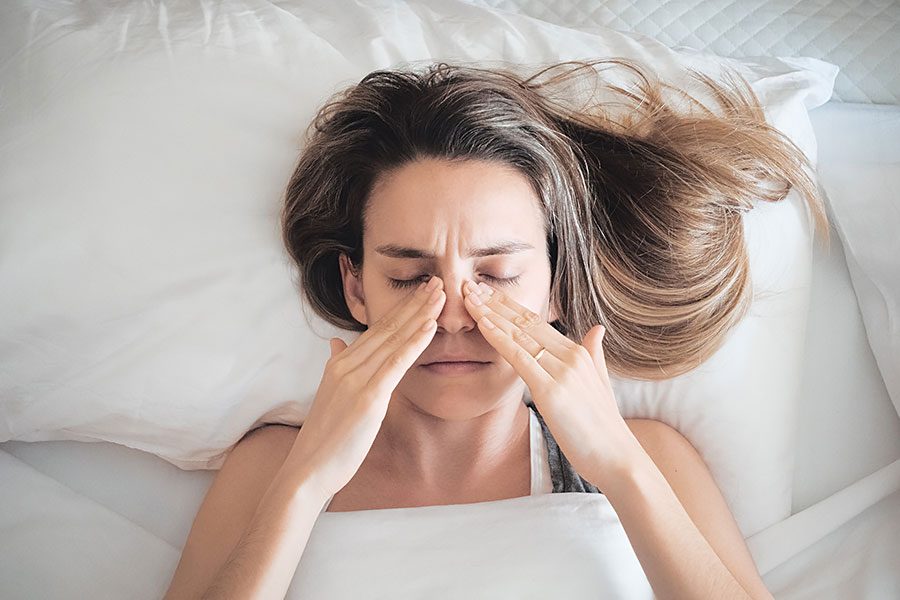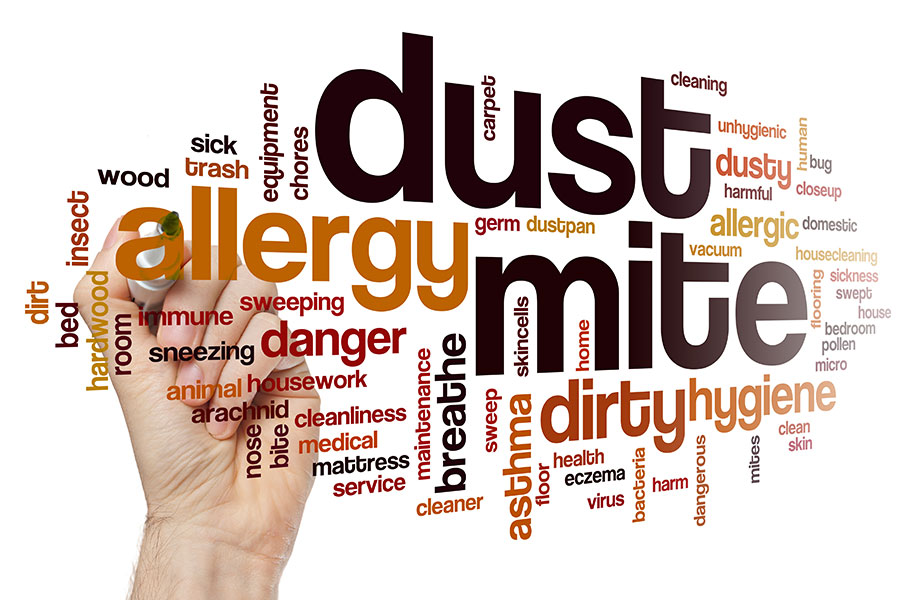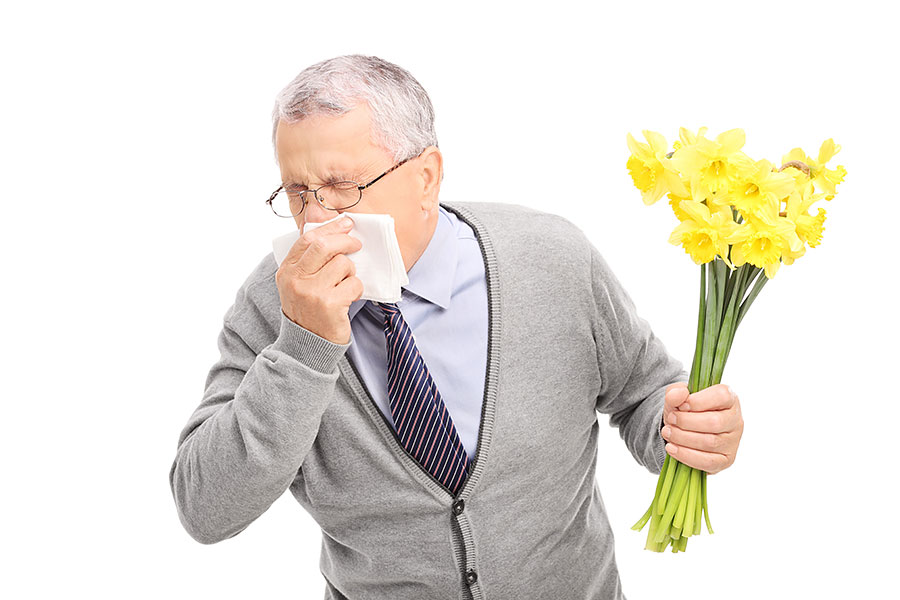The Asthma and Allergy Foundation of America reports that 5.2 million children and 19.2 million adults in the U.S. have allergic rhinitis, also referred to as hay fever. The most common outdoor/indoor allergic triggers include tree, grass and weed pollen, mold, animal dander and dust mites.(1)
Allergic rhinitis can have a significant impact on a person’s sleep and thus quality of life. Nasal congestion is often worse at night. Many of the indoor allergens are frequently found in the bedroom. Dust mites, for example, live in mattresses, pillows, and box springs, feeding on dead skin cells.(2)
Sleep impairment associated with allergies affects patients’ functioning in specific areas, causing daytime drowsiness, fatigue, and decreased cognitive and psychomotor abilities. “Poor sleep quality is an indicator that allergic disease is in poor control and has particular relevance for a patient’s daytime function and overall quality of life.”(3) A survey referenced in Primary Care Respiratory Journal found that among 1,322 self-reported allergic rhinitis sufferers, 68% stated their allergic condition interfered with sleep.(3)
Increased allergy symptoms at night are sometimes a result of lack of adherence to recommendations for medication use, such as daily use of topical corticosteroids, asthma medications or rescue medication. “Thus, the importance of consistent medication use is crucial for high-quality sleep in patients with atopic diseases.”(3)
A leading health clinic provides these strategies for improving sleep in allergy sufferers:(4)
- “Lock down” bedding, use zippered covers for pillows, mattress and box spring
- Avoid carpeting
- Use window blinds instead of drapes
- Wash stuffed animals weekly in hot water, dry on high setting. If a toy cannot be washed, seal in a plastic bag and place in the freezer overnight
- Avoid ceiling fans — they collect dust and then spread throughout the room
- Limit humidity — use a dehumidifier and keep windows closed
- Consider a HEPA filter
- Don’t allow pets in the bedroom
- Shower before bed and keep dirty clothes outside the bedroom
- Use allergy medication, per healthcare provider’s instruction
Xtract Solutions offers cloud-based software, designed to organize the allergy practice, from initial testing through to successful completion of immunotherapy.
(1) Asthma and Allergy Foundation of American, Allergy Facts and Figures, https://www.aafa.org/allergy-facts/
(2) Pacheco, D., reviewed by Wright, H. MD, Sleep Foundation, Allergens That Impact Sleep, https://www.sleepfoundation.org/
(3) Koinis-Mitchell, D. PhD, Craig, T. DO, et. al., Journal of Allergy and Clinical Immunology, Sleep and Allergic Disease: A Summary of the Literature and Future Directions for Research, https://www.ncbi.nlm.nih.gov/
(4) Cleveland Clinic, healthessentials, Get Some ZZZs With These Nighttime Allergy Relief Tips, https://health.clevelandclinic.org/




